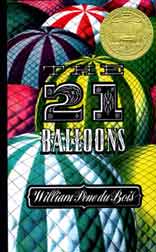...thoughts expressed here are not necessarily final.
October 4, 2004 Obligatory Purveyance of putrid pun.
Why is today like a CB radio? Because it's 10-4 good buddy. Badumpbump.
Octoberfest is over already? What a drag!
|
Went to the Annual Fish Fry at my church on Sunday and tried to kick in and help. No good deed goes unpunished. The trash bag I was carting away burst open and about a gallon of some indescribaly putrid pink sauce dumped on me. Don'tcha hate it when that happens? Eeyyuchhh.
|
 |
Like with most church feasts, these things are called fellowships, but it was mostly about eating and having family time together.
We were getting over the last stages of some bug we picked up last Wednesday night at church. Seems someone figured that - hey- "we're supposed to have all things in common" so they shared the bug.
October 05, 2004 The Lewis course is on...
I told the boss I am taking a day to peruse my online course and got his blessing. My ulterior motive is to observe how online courses are facilitated by commercial entities and compare that with educational institutions. Really. It's true. I do get to do SOME cool stuff from time to time.
So I am working my way through an online freebie course at Barnes and Noble University taught by Bruce Edwards, one of the more accessible of the Lewis experts out there. He teaches and administrates the Distance Learning program at Bowling Green State University. I got my Editor 1 certification there a few years back at their National Institute for the Study of Digital Media (NISDM).
I will be blogging the experience here, but lots of the posts for the next month will likely replicate what I am waxing eloquent about THERE.
Discussion:Surprised by Joy
1a. Why do you think Lewis chooses to emphasize his main reading influences during his younger years as part of his autobiography?
Anthony: Because "the parts devoted to the earlier years werefar more interesting", at least to Lewis. I think Lewis recognizes that the power of the early stages of our lives are why they are called "formative".
That's when we struggle with the propensity to color outside the lines and strain to find a balance. Lewis is setting the stage in a sense for his "argument by desire". He reveals the origins of the inward struggles to find a dwelling place in what he will later characterize in terms of a geography of the soul. The struggle between the cold and hot temperaments of his parents, the idea of Northerness, etc. In our youth we tend to gravitate toward that which turns our crank, and then we are constantly getting jerked into submission. In the long run, the circumstances of the formative years can be a point of departure or a hurdle based on the responses one makes toward them. It's notable that Lewis is not in the least nostalgic for these days.
1b. What do you regard as your most formative reading experiences in life?
Anthony: Does anyone remember the Funk and Wagnall's Encyclopedia volumes you could get for a nominal fee when you bought groceries back in the 1960's? I used to devour those as a child.
| Upon receiving my first library card, a wise
librarian steered this nine year old to Tolkien and Lewis. I also
remember the Newberry award winning The Twenty-One Balloons
by William Pène du Bois and his other works making a big impression
upon me. Unfortunately another unwise librarian saw I liked Lewis and equated that with the occult and steered me to reading occult literature. My parents had no idea. |
 |
2a. How does Lewis describe his relationship with his brother, Warnie?
Jack and Warnie were allies in the best sense- they seem to play off each other- as iron sharpens iron in adulthood, I think imagination sharpens imagination in childhood.
2b. How may this friendship be integral to Lewis' growing imaginative life, as a prelude to creating Narnia?
Working with creative collaborators give one a certain freedom to explore. From the beginning he did not create in a vacuum, and that continued with the critique afforded by the Inklings in later life. What Lewis equates with a lack of the presence of physical beauty in his formative years is compensated for by he and Warnie with the creation of the Boxen world. Lewis says he approached these from a prosaic stance. It seems the marriage of the early mythic and epic anthropomorphisms to the sense of wonder the moss garden evoked would not occur until after Lewis had explored atheism and the occult in search of it.
3. What is the nature of the spiritual crisis Lewis faces after his mother's death, and how does it affect his "search for joy"?
Anthony- He experienced the devastation of the recognition that "the thing hadnıt worked" the inevitable result of the mechanization of faith into a controllable activity, wherein you put in the effort(a) and the results(b) are guaranteed. Lewis says this was not a religious experience- I would agree. It is a pale counterfeit that needed to be destroyed and the sooner the better. It is more of a beginning of the process of deconstruction of this ³religion², which tends to be man-made and has nothing to do with making much of God. It set the stage for his journey through skepticism which would come full circle to the discovery of joy. Jungian detractors have made much of linking Lewisı reaction to his Momıs death to his later conversion.
4. Why does Lewis refer to the next several years following his motherıs death as a "Concentration camp"? Where is Lewis during these years, and what is happening to him?
 |
Upon the loss of his beloved mother, Lewisı incredibly insensitive father sent him off to a much hated boarding school, in a soon to be much hated country, England, where abuse and severe discipline in the public schools were common fare. He was separated from all that was familiar at an impressionable time. |
5. In Chapter Three, Lewis says, "I fell under the spell of dwarves." What do you think he means by thisand how may this statement help us to appreciate his interest in creating the characters and landscapes of Narnia?
Lewis becomes fascinated with fairy tales and the inhabitants thereof. It is good to remember that the Chronicles are not strictly Christian allegories- The Chronicles of Narnia borrow from Norse, Greek and Roman mythology, and traditional English and Irish fairy tales as well. That Hideous Strength is subtitled "A Fairy Tale for Adults."
In "Sometimes Fairy Stories May Say Best What's to Be Said," from On Stories and Other Essays on Literature, Lewis writes "Everything began with images; a faun carrying an umbrella, a queen on a sledge, a magnificent lion. At first there wasn't even anything Christian about them; that element pushed itself in of its own accord. It was part of the bubbling."